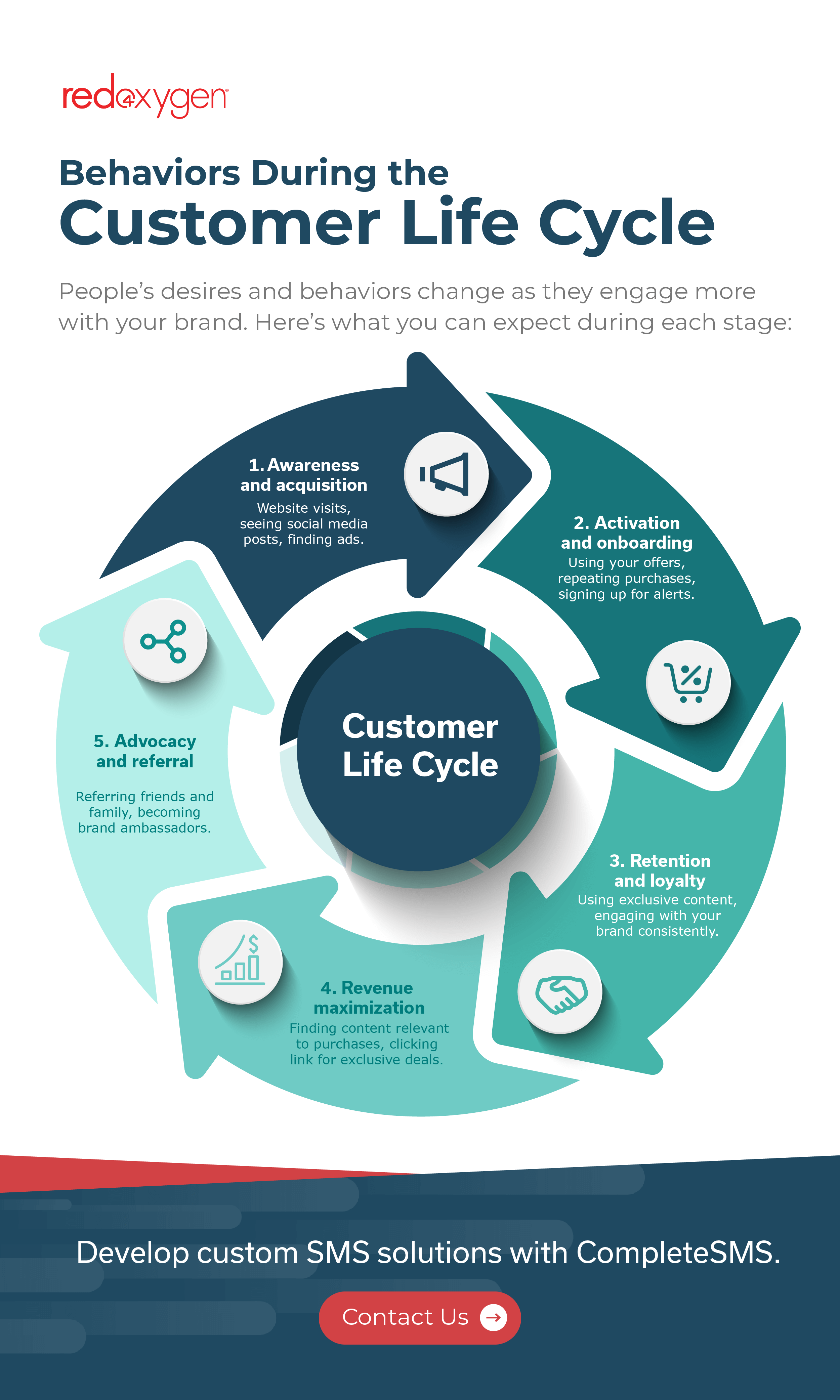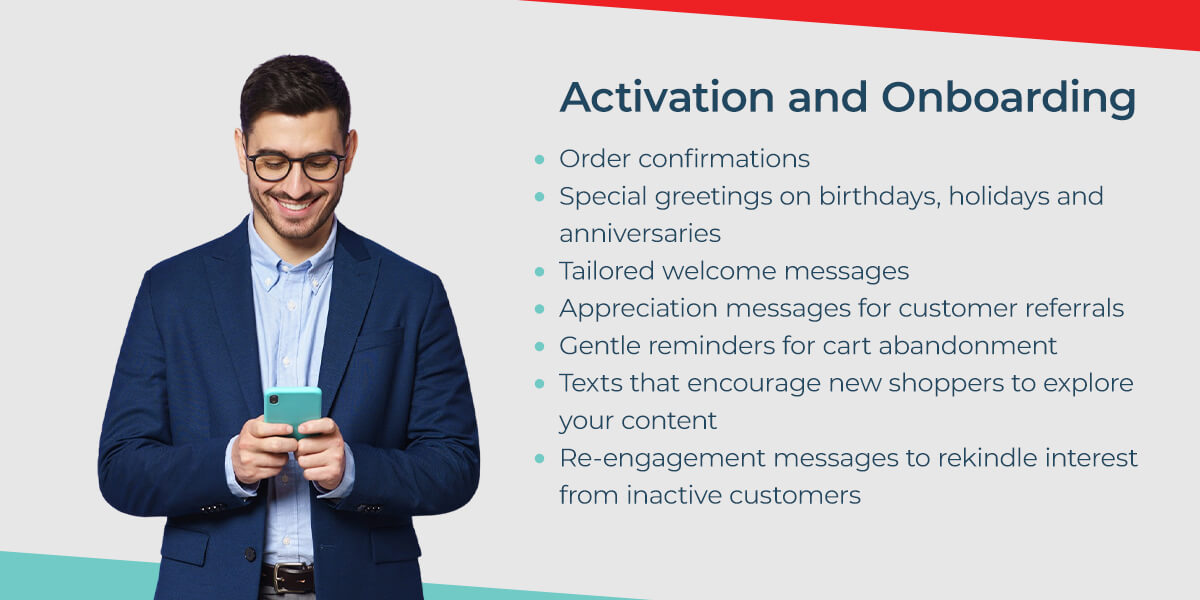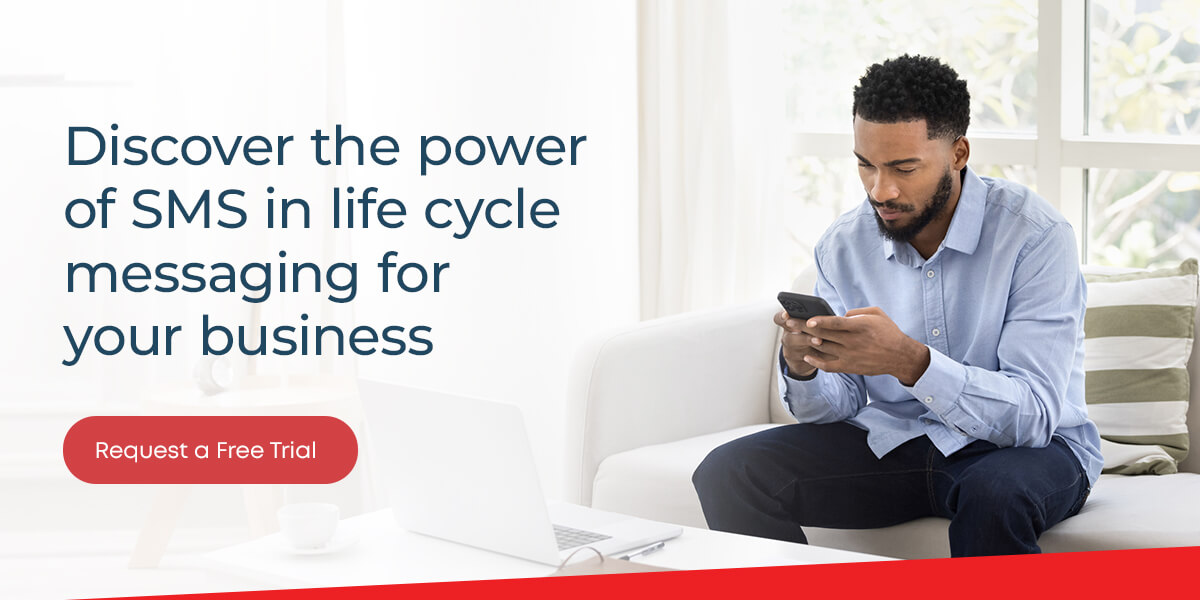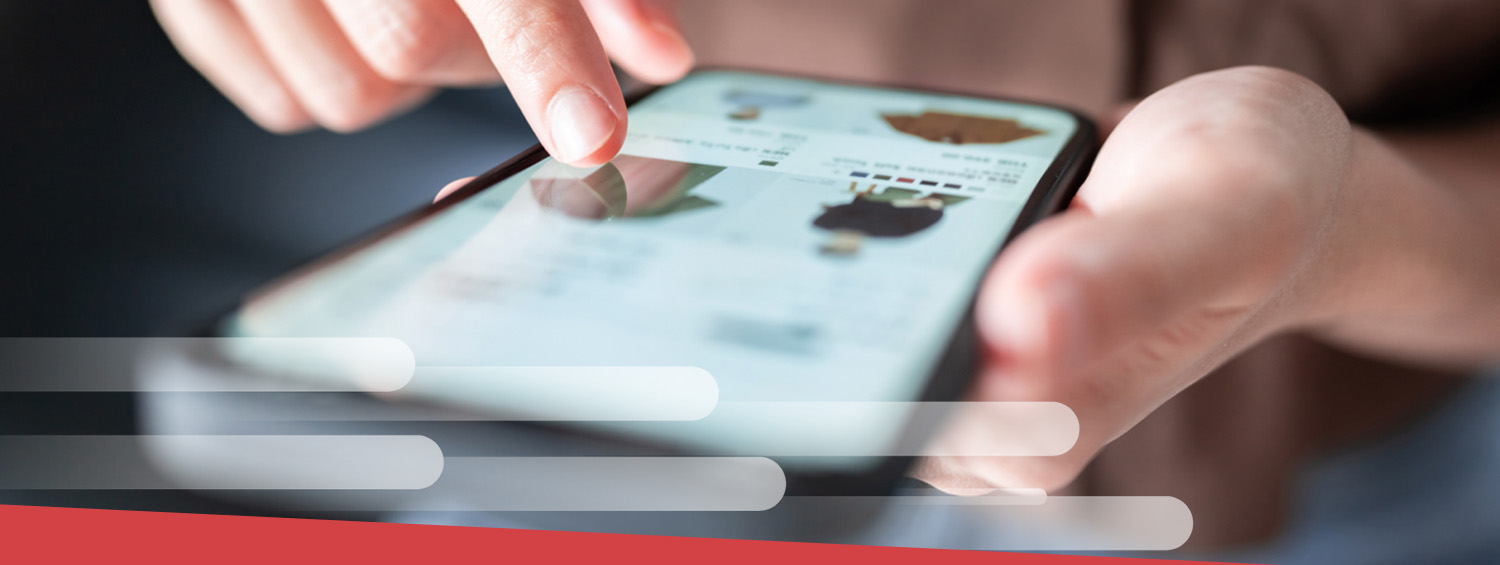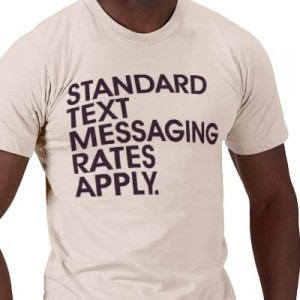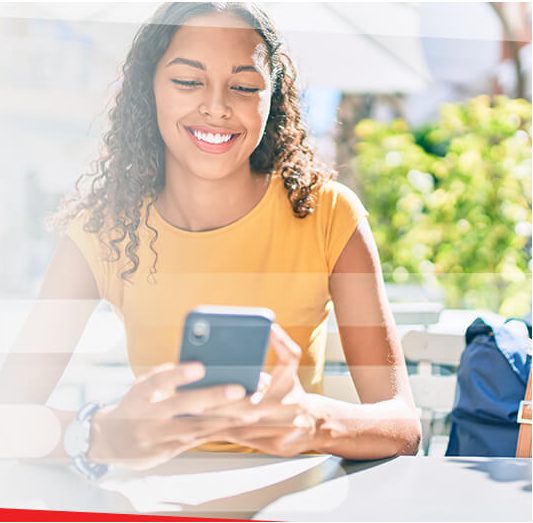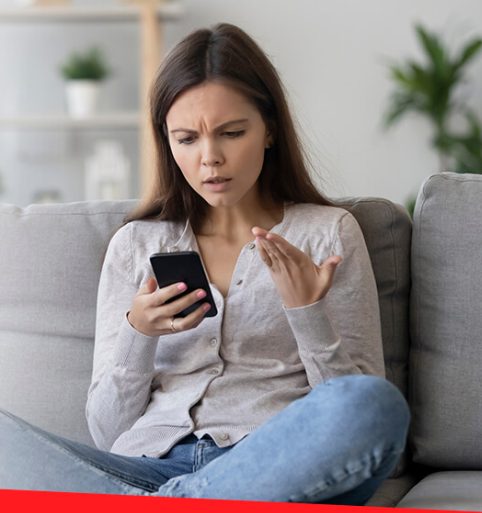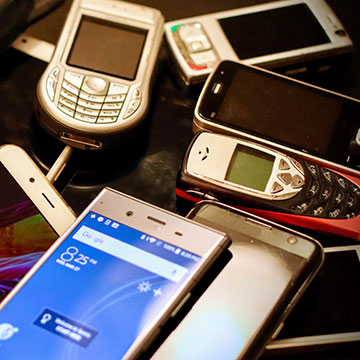
When you make a new connection with a customer, you need to keep their attention. That’s where an effective customer life cycle management and marketing strategy comes in.
What is customer life cycle management? This model illustrates the different stages of consumers’ relationships with your brand. You must understand how customers’ wants and needs evolve over time to keep them satisfied. Savvy marketers tailor their brand messaging to each stage of the customer life cycle to boost engagement and maximize customer lifetime value.
Adapting Messaging Throughout the Customer Life Cycle
People’s desires and behaviors change as they engage more with your brand. While the real-world customer life cycle is more complex, this linear model is still an excellent tool for planning your marketing strategy.
1. Awareness and Acquisition
Also known as the “reach” stage, awareness is the moment when prospects initially encounter your brand through one of your touchpoints:
- Visiting your website
- Seeing a social media post from your business’ page
- Hearing about your brand from word of mouth
- Finding your online or print ads
Your goal in the awareness stage is to keep the user’s attention by providing engaging, educational content that cements your brand as a reliable source of information, including:
- Informational articles
- Videos
- Infographics
- Top-of-funnel content
To generate leads, you can also require users to submit their contact information to access higher-value content, like white papers or original research.
Once a user becomes a lead, they enter the acquisition stage. The goal of this stage is to keep those leads engaged through consistent communication. Ideally, you’ll want to encourage them to opt into personalized messages so your brand stays at the forefront of their minds. For example, customers can text “JOIN” to your dedicated number to receive incentives, special offers and promotions via text.
2. Activation and Onboarding
Customers in this stage have a favorable opinion of your brand and feel informed enough to purchase something. Your goal now becomes showing them what makes your product or service the most valuable option.
The best way to approach this stage is to view it as the start of a long business relationship rather than securing a one-time sale. For example, once a customer places an order with you, your messaging should shift toward actionable tips for maximizing their purchase’s value.
You’ll also want to encourage customers to regularly use your offerings to drive repeat purchases. They’ve given you permission to text them, so respect their time and energy. Keep your messages fresh with content, offers or features they can’t find anywhere else. Prioritize value and diversity over message frequency. Some SMS messages that can establish a long-lasting customer relationship include:
- Order confirmations
- Special greetings on birthdays, holidays and anniversaries
- Tailored welcome messages
- Appreciation messages for customer referrals
- Gentle reminders for cart abandonment
- Texts that encourage new shoppers to explore your content
- Re-engagement messages to rekindle interest from inactive customers
3. Retention and Loyalty
Many brands make the mistake of investing heavily into acquiring prospects and growing their leads list while neglecting retention and loyalty.
The primary goal in this stage is to turn a first-time buyer into a repeat customer, and that requires you to continue nurturing your relationship with them through targeted, consistent communication and exclusive perks.
SMS texting is a convenient channel for most people. It also improves retention efforts.
- Personalized messages: People expect a human touch from companies they do business with, and an integrated SMS messaging solution that allows for personalization at scale is essential for maintaining that personal connection.
- Two-way communication: Make it easy for people to reach customer support services and leave feedback about their experience with your brand.
- Consistency: Periodically sending SMS keeps your brand at the top of people’s minds and encourages them to continue engaging with you by making more purchases, interacting with your social media content and participating in customer surveys.
Some customer life cycle models also include a “disengagement” or “churn” stage at this point that addresses shoppers who are losing interest in your brand. Offering incentives, like a special discount or exclusive content, can win them back. Scheduling Bulk SMS can also prevent an increase in opt-out rates by allowing you to send messages at the appropriate frequency.
Remember, a barrage of information from your business can adversely affect your customer relationships. Depending on your business’ needs, you may find sending SMS marketing texts will be determined by your audience and their tolerance, your sends may need to be as low as two times a month or as high as six to keep them effectively keeps customers engaged.
4. Revenue Maximization
Younger customers quickly switch brands if they feel they’ll get a better deal elsewhere. While you could spend more time and resources acquiring new customers, neglecting your existing customer base will likely reduce your revenue potential.
Consistent communication is just as crucial for customer retention as it is for acquisition. Some ways you can use SMS messages to maximize LTV include:
- Providing links to exclusive deals and offerings
- Notifying customers of upcoming products and services
- Suggesting content that’s relevant to their purchases
- Upselling and cross-selling with offers for similar products or services
Continuous life cycle analysis maximizes LTV by helping you identify your campaigns’ strengths and weaknesses. For example, monitoring the open rate of specific bulk messages can help you determine which ones connect most with your customers.
5. Advocacy and Referral
Strategic communication can turn your loyal customers into advocates for your brand through word-of-mouth marketing and referrals.
Here are some examples of ways you can activate your customers to market your brand.
- Referral bonuses: Offer incentives like discounts or coupons whenever a customer refers a friend, family member or co-worker to your business.
- User-generated content: Soliciting content from your customers, like photos of them using a product or reviews of their experience, boosts overall engagement and attracts new customers.
- Brand ambassadors: A brand ambassador engages your customer base by representing you on social media.
- Philanthropy: Connect your brand with a cause that matters to your target audience to make them feel good about their purchases.
Word-of-mouth referrals to drive your business growth would be the optimal result — but not all customers will voluntarily tell their loved ones about your brand unless you incentivize them. Reminding your customers of these opportunities through automated SMS messages can motivate them to act, increasing your potential for continued growth. With an SMS marketing campaign, you can send customers a referral message to share with family and friends in exchange for benefits like:
- Cash bonuses
- Gift cards
- Free products or services
- Contest entries
- Early access or exclusivity
- Discounts and rewards
Effective Customer Life Cycle Messaging
Incorporating feedback into your customer life cycle marketing strategy can help you optimize your messaging for the best possible results. Tune in to your customers’ opinions to demonstrate your commitment to them and identify ways to continue improving their experience.
A Voice of the Customer program is an effective way to gain valuable insight into the customer experience by collecting and analyzing feedback. Some VoC techniques you might use include:
- Customer interviews
- Social media engagement
- Online and in-person surveys
- Focus groups
- Dedicated feedback forms
You can use communication methods like bulk SMS messaging to quickly send links to surveys and interest forms to all your customers, which can help boost participation. Gathering feedback through a quick, personalized SMS message demonstrates that your brand values your customers’ opinions and experiences.
Enhance Customer Experiences With Red Oxygen
An engaging omnichannel experience is essential for effective customer life cycle marketing, and SMS messaging is a critical component in that process.
Red Oxygen integrated SMS solutions enable you to write and send messages using your existing tech tools, creating a seamless user experience and enabling more efficient communications. We can also work with you to develop custom SMS solutions tailored to your organization’s unique needs.
Discover the power of SMS in life cycle messaging for your business. Request your free trial today to get started.


